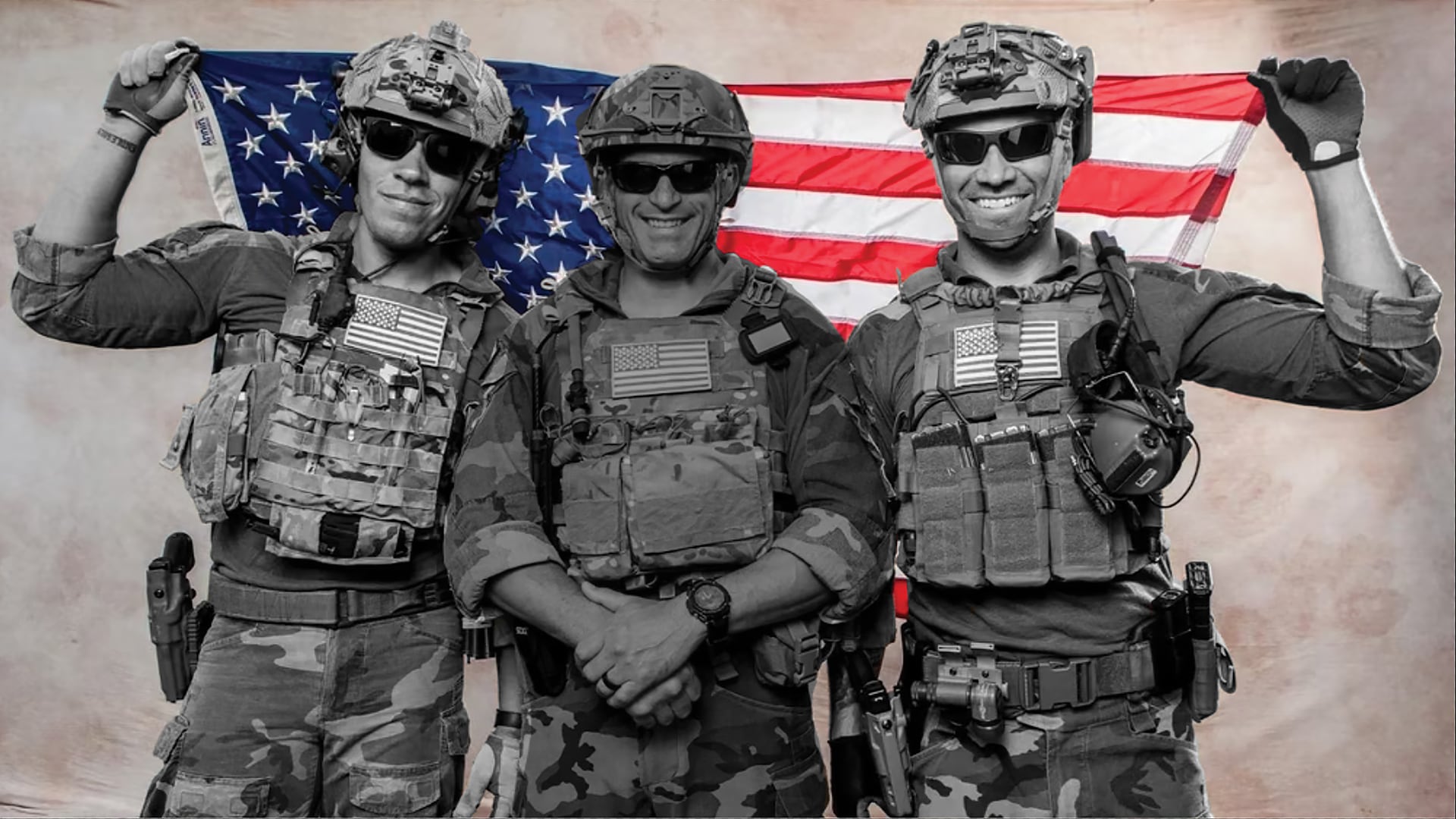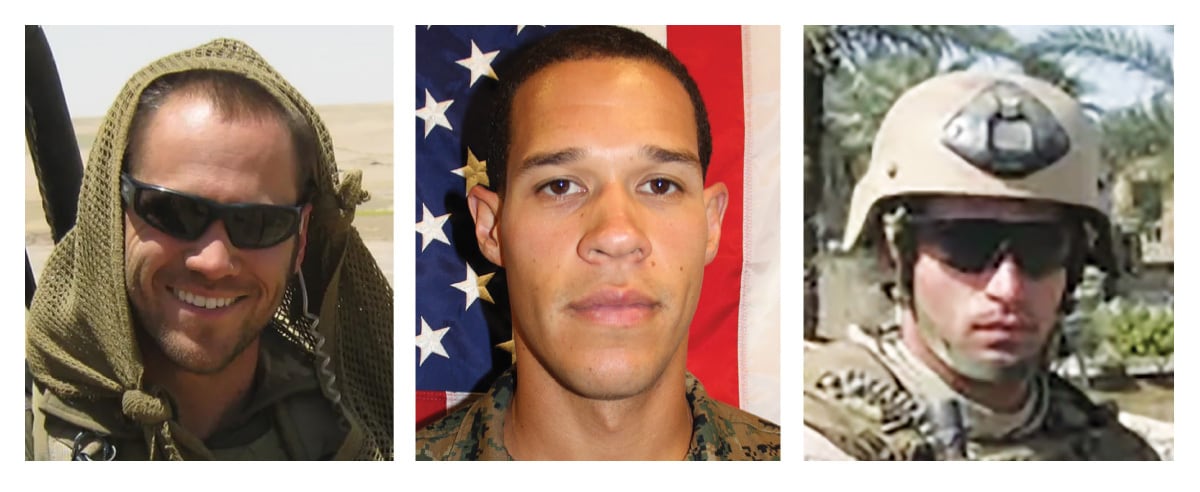In January, Gunnery Sgts. Josh Negron and Danny Draher were in dire legal straits, going on trial for homicide charges after they were charged with allegedly causing the death of a Green Beret veteran in Iraq.
Once the two Marine Raiders were found not guilty of the most serious charges — involuntary manslaughter, negligent homicide and dereliction in the performance of duties — they briefly faced the prospect of prison time or other punishment for their sole conviction, for violating a lawful general order by consuming alcohol while deployed to Iraq.
After the jury decided to award them no punishment, the two special operators hoped that the commander of Marine Forces Special Operations Command might set aside the felony convictions.
But on April 28, MARSOC’s commanding general, Maj. Gen. Matthew Trollinger, officially decided not to offer the men clemency, meaning that Draher and Negron will not emerge legally unscathed from the yearslong prosecution effort.
“The convening authority carefully considered the decision by the member’s panel and the matters submitted by the accused and declined to set aside the conviction,” the command said in a statement to Marine Corps Times in June.
Negron lawyer Joseph Low IV told Marine Corps Times in a June interview that the two Raiders will be marked as felons for engaging in an action that would be legal in the civilian system. As a result, they likely will have a tougher time finding employment, they likely won’t be able to own guns, and they may face restrictions on voting or jury service.
How it all began
In the early morning of New Year’s Day 2019, Draher and Negron were drinking, contrary to orders, at a bar off-base in Irbil, Iraq.
So were multiple other Marines from their unit, as some of them even admitted on the witness stand at their fellow Marines’ trial. But these other Marines didn’t face general court-martial, according to Low, a Marine veteran.
Retired Army Master Sgt. Rick Rodriguez, a military contractor, also was drinking at the bar that night, and security footage showed him becoming aggressive with Negron and Draher’s friend, Navy Chief Petty Officer Eric Gilmet.
After getting escorted from the bar, Rodriguez and the Marines encountered each other again outside. Footage of the ensuing altercation was grainy, but it appeared that Rodriguez became aggressive with Draher.
Draher pushed him, and then Negron stepped in, striking Rodriguez and knocking him to the ground. Lawyers for Negron maintained that he acted to protect Draher.
RELATED

The Marine Raiders left Rodriguez overnight with Gilmet, an experienced corpsman, rather than taking him to a hospital immediately. The Army veteran was pronounced dead on Jan. 4, 2019, at a military hospital in Germany.
Rodriguez was survived by his wife, four children, granddaughter, parents and three siblings, his obituary stated. A Rodriguez family member did not respond to a Marine Corps Times request for comment on the latest development.
Negron, Draher and Gilmet — often known colloquially as the “MARSOC 3″ — were charged in December 2019, in a case that has since drawn national media interest and condemnations from members of Congress, who have raised concerns about the fairness of the prosecution.
Prosecutors had argued in part that Rodriguez could have been saved if the special operators had taken him to a hospital earlier.
But in February, following a trial at Marine Corps Air Station Cherry Point, North Carolina, a jury made up of other special operations Marines found Draher and Negron not guilty of all charges except for violation of a lawful general order.
Consequences of the conviction
Low noted to Marine Corps Times that the jury hadn’t even given the two Marines a letter of reprimand. Before the jury members reached their verdict, he hadn’t been authorized to tell them about the consequences of a felony conviction, he said.
“If the jury, in my opinion, found out that this is what the consequences are, I think they would have gone with jury nullification and not even convicted them over that,” he said.
Jury nullification occurs when jurors decide to find a defendant not guilty of violating a law despite overwhelming proof to the contrary, usually because the jurors feel the law, or the application of the law, is unjust.
Marine Lt. Col. Eric Catto, the judge who presided over their trial, recommended MARSOC offer Negron and Draher clemency, according to Low and documents obtained by Marine Corps Times.
Draher’s lawyer, Phillip Stackhouse, did not respond to a Marine Corps Times request for comment.
In the interview with Marine Corps Times, Low expressed frustration that Trollinger hadn’t met with him to hear his client’s concerns or provide an explanation for the decision not to offer clemency.
“I’d put that general’s resume up against my guy, and let’s see if the general has one 100th the amount of combat experience that this man has,” Low said. “And yet this general’s passing judgment on my guy, wants to ruin his life, for a drink of alcohol? Who is this person? I’d like to meet him personally.”
In its brief statement to Marine Corps Times, Marine Corps Special Operations Command declined to say whether it would pursue administrative actions against Draher and Negron or provide additional comment. But the Raiders’ defense team has gotten word that the Marine Corps will process them for administrative retirement, which could involve a reduction in grade and a less-than-honorable discharge, Low told Marine Corps Times on June 30.
The two Raiders could lose “over six figures” in retirement income, Nick Coffman, an advocate for the MARSOC 3 who works with United American Patriots, wrote in a Task & Purpose op-ed.
The Marine Corps is also working to take away Negron and Draher’s Raider badges, signifiers of their membership in the elite Marine special operations community, Low said June 30.
“His plan, currently, is to remain loyal to the Marine Corps, despite whether they deserve it or not,” Low said of Negron. “That’s just the kind of person he is.”
Gilmet’s case is being prosecuted separately. The chief petty officer, who received immunity to testify at the trial of the Marine Raiders, is awaiting a ruling from the highest military court about whether a lower-court judge was right to toss out his case because of alleged unlawful command influence by a top Marine prosecutor.
Even if Gilmet’s case proceeds to trial, his immunity will mean prosecutors will have to prove they got their evidence independently of his trial testimony — which would not be an easy task, according to Gilmet lawyer and retired Marine Lt. Col. Colby Vokey.
Irene Loewenson is a staff reporter for Marine Corps Times. She joined Military Times as an editorial fellow in August 2022. She is a graduate of Williams College, where she was the editor-in-chief of the student newspaper.





